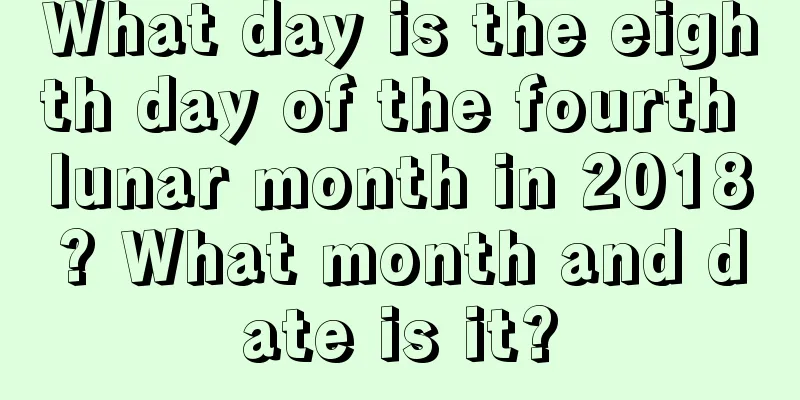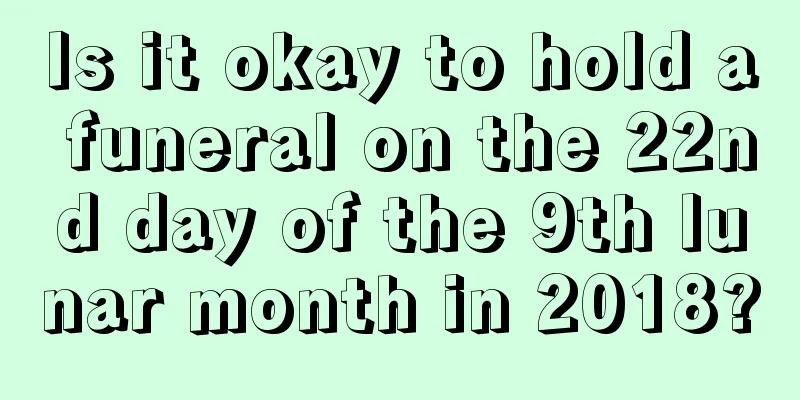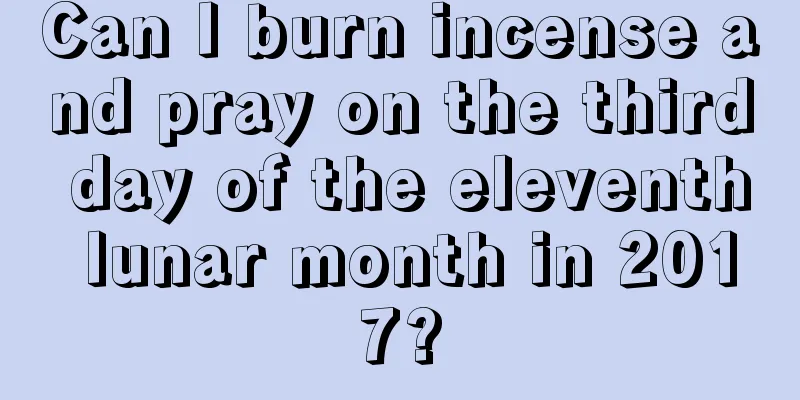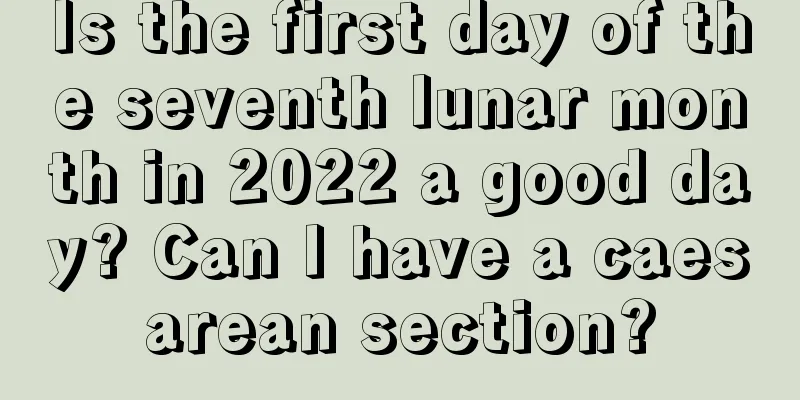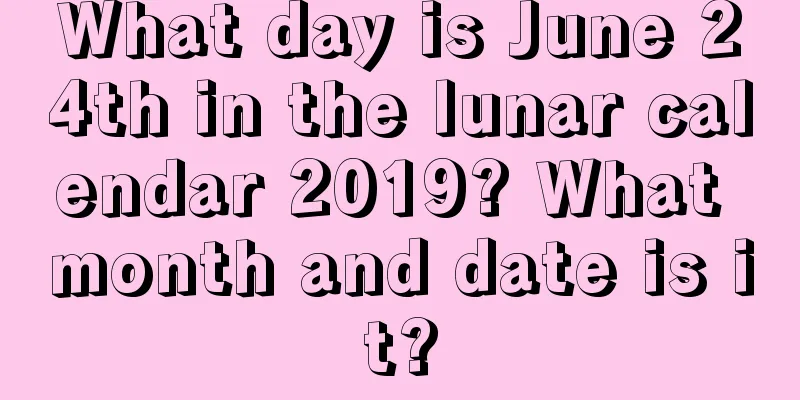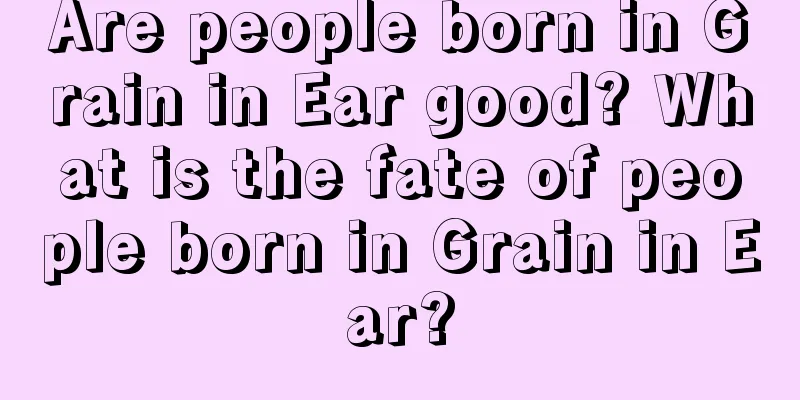What are the five most common misunderstandings in Feng Shui?

|
Introduction: If you are interested in Feng Shui and want to learn more about it, you must first master some introductory knowledge. For example, this article will introduce the five common misunderstandings in Feng Shui. Misunderstandings are things that are often misunderstood by people, so they must be corrected. Please see below for details! If you want to know more about Feng Shui, Mr. Shui Mo has prepared a special topic on Feng Shui for you to give you a more comprehensive understanding. Misconception 1: Born to be auspicious, unlucky to be unlucky.What needs to be emphasized here is: 1. Generation and restraint can produce good or bad luck, but generation and restraint themselves are not representatives of good or bad luck, and it is not the case that generation is good luck and restraint is bad luck; 2. Generation can produce good luck or bad luck. Generation that is beneficial to the owner of the life is good, while generation that is harmful to the owner of the life is bad luck. Similarly, restraint can also produce good or bad luck. The restraint that is beneficial to the owner of the life is good, while the restraint that is harmful to the owner of the life is bad luck. Third, although both generation and restraint can produce good or bad luck, the generation of good or bad luck is often gentle, slow, gradual, etc., while the restraint is often fierce, fast, sudden, etc. This is the difference between generation and restraint in producing good or bad luck. Misconception 2: Make up for what you lack.Warm reminder: The Eight Characters are a description and simulation of a person's destiny. A person may lack many things in his life, but he or she does not necessarily need these things; similarly, one, two, three or even four of the Five Elements may be missing in the Eight Characters, but he or she also does not necessarily need these missing elements. You have to know that shortage and need are two different things. Shortage does not necessarily mean need, and need does not necessarily mean shortage. Therefore, in the Eight Characters, you should only supplement one of the five elements when you lack it and need it. On the contrary, if you lack one of the five elements and do not need it or even taboo it, but you try to supplement it, it will only become a burden or even a disaster. Misconception 3: The more wealth you have, the better.All things in the world are interconnected, and destiny comes from common sense. No matter how good something is, the more it is, the better it is. No matter how good ginseng is at nourishing the body, eating too much of it will be harmful. Similarly, whether in real life or in numerology, having too much wealth is not good, as it can easily lead to disasters. As the saying goes, wealth can bring about death, and death can bring disaster. So, how do we know how to grasp the prosperity of wealth? It is believed that we can judge according to the principle of "balance is good, imbalance is bad" in Zhouyi numerology, that is, within the range that the day master can bear, the stronger the wealth star is, the better. However, if the prosperity of the wealth star exceeds the day master's tolerance, it will inevitably cause disaster due to imbalance. Misconception 4: Gold means wealth.Some people generalize and think that gold is wealth based on the term "money", or that the five elements attribute of wealth is gold. It is wrong to think that this view is obviously illogical. From a realistic perspective, in history, gold was indeed the main currency. But as we all know, paper money is the main currency nowadays. Does that mean that wood is wealth? Of course not. In fact, gold, wood, water, fire and earth can all be used as wealth. In other words, the five elements of wealth are not fixed, but vary from person to person. The definition is "what I overcome is wealth." The "I" here refers to the person's fate, that is, the day of birth. If the five elements of the day stem of birth are wood, then earth is wealth, because wood overcomes earth; and the same goes for the rest. Misconception 5: You will get wealth when you see water. In Feng Shui, there is a concept that "mountains represent population and water represents wealth", so many people understand this sentence to mean "seeing water means getting wealth". I think this kind of understanding is called knowing only one side of the story. It is true that "water represents wealth" in Feng Shui, but if I look carefully, I will find that the "wealth" mentioned here is not qualitative, that is, it does not mean "seeing water means gaining wealth". In fact, it may also mean "seeing water means losing wealth". So, how do we judge whether seeing water in Feng Shui means gaining wealth or losing money? This naturally depends on the time and space where the water appears, as well as the clarity, straightness, size, speed, etc. of the water itself. |
<<: Do you know the five major hints of how Feng Shui affects you?
>>: Don’t be a “leftover fighter”! Five tips to help you attract more lovers!
Recommend
Is August 29th of the lunar calendar in the Gengzi Year of 2020 a suitable day to travel?
Is August 29th of the lunar calendar in the Gengzi...
Is there a holiday on Arbor Day 2020? Where can I plant trees?
March 12th of every year is Arbor Day, which is a ...
What is the fate of a baby girl born on July 23, 2021 in the lunar calendar?
The fate of a baby girl is related to the time of ...
Is October 18th of the lunar calendar 2019 an auspicious day for building a house? Check the auspicious day for building a house!
Whether it is a huge construction project or a sma...
Is September 14th of the lunar calendar 2020 a good day? 2020 Lunar Calendar September 14th
Is September 14th of the lunar calendar 2020 a go...
Is it a good day to move to a new house on the 15th day of the eighth lunar month in 2018?
In the eighth month of the lunar calendar, the sk...
Is it suitable to get a haircut on February 30th of the lunar calendar in 2020? What is the five elements of February in the lunar calendar?
Introduction: You also need to choose an auspiciou...
Is it a good idea to move during the Dragon Boat Festival in 2022? Which day around the Dragon Boat Festival is an auspicious day to move?
The Dragon Boat Festival falls on the fifth day of...
Is it auspicious to install the bed when moving on May 11, 2020? Feng Shui considerations for installing the bed when moving!
Introduction: It is necessary to choose an auspici...
What can’t you eat during the Cold Dew Festival? When is the Cold Dew Festival in China?
Introduction: The arrival of Cold Dew indicates a ...
Is it auspicious to travel on the third day of the second lunar month in 2021? What is the most auspicious time?
An auspicious day is a day when everything goes we...
When does Lesser Heat begin and end?
When does Lesser Heat begin and end? "Shu&quo...
Is the ninth day of the ninth lunar month in 2017 suitable for moving? Is it a good time to move into a new home?
There are good and bad days, life has its bittern...
What is the next solar term after the Beginning of Heat? Is the Beginning of Heat in 2020 suitable for worshipping graves?
Introduction: Different solar terms have different...
Can’t have sex on the beginning of winter? Can’t do it for a few days before or after? What are the effects of having sex?
There are certain taboos and rules to follow durin...
